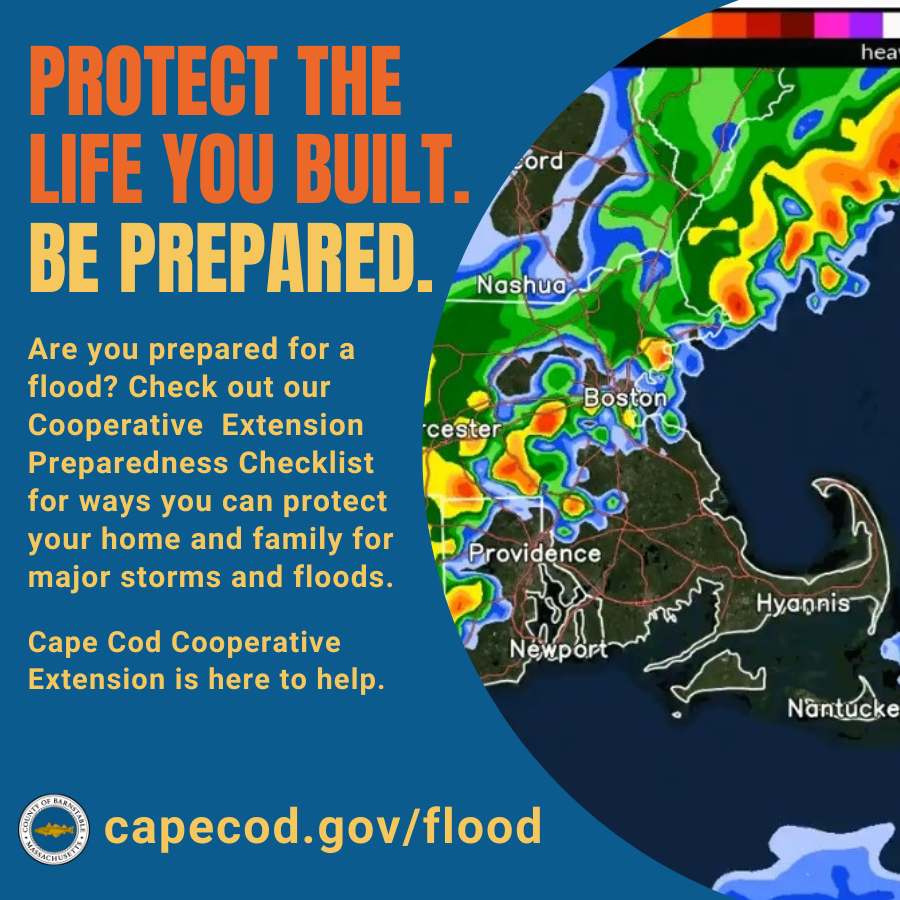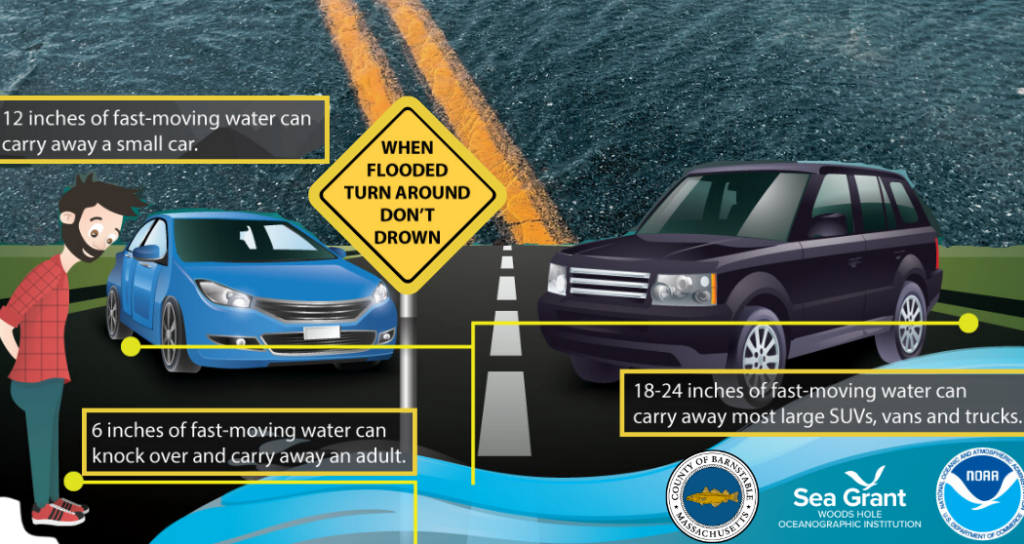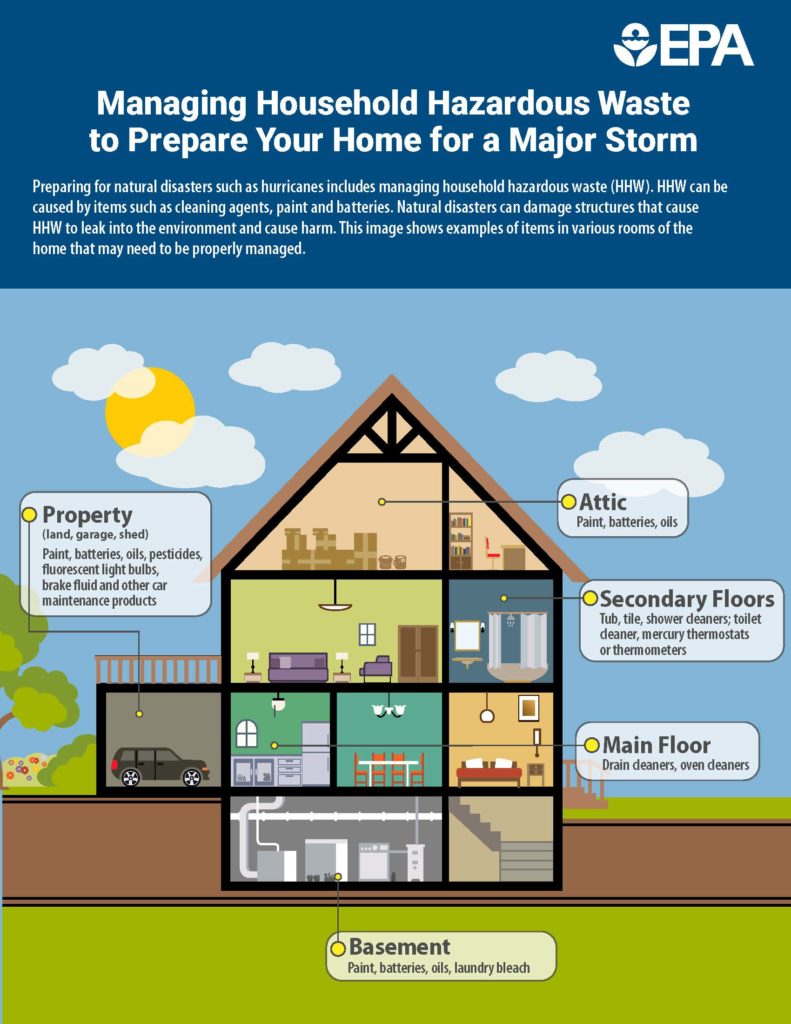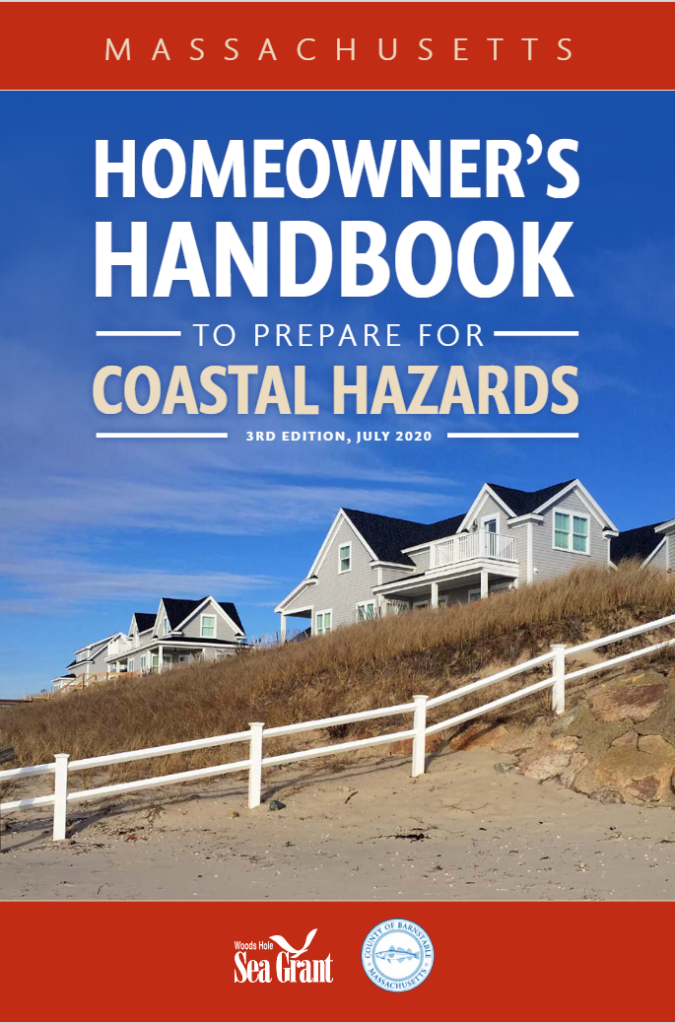
Plan Ahead, Be Prepared to Weather Flooding on Cape Cod

Flooding is a reality on Cape Cod. If it rains on your property, it can flood—even if you’re not near the beach or a body of water.
Storm surges from coastal storms can also cause serious flooding, covering streets and homes in water. So why prepare?
Extreme weather can shut down an entire region—flooding homes, cutting off power, closing schools, and disrupting communication. Taking steps to get ready now can help keep your family safe, reduce damage, and make our Cape Cod community stronger when disasters strike. Think of it like buckling up before a drive—it’s about being prepared for the unexpected.
Protect Your Home.
Your home is one of your biggest investments and a place that keeps your family and belongings safe. But coastal storms, floods, and high winds can threaten that security. The good news? You can take simple steps now to prepare for flooding and reduce the risks.
To help you get ready for natural hazards, Extension’s Coastal Flood and Erosion Agents teamed up with Woods Hole Sea Grant to bring you the Massachusetts Homeowner’s Handbook to Prepare for Coastal Hazards. It’s free and full of easy, cost-effective tips to help protect your family and home. While you can’t prevent all damage, small actions can make a big difference. Click Here to Download the Massachusetts Homeowner’s Handbook to Prepare for Coastal Hazards.
Building on the Homeowner’s Handbook, we are pleased to introduce our new Resource Guide to Flood Insurance and Protecting Your Home and Business on Cape Cod. This easy-to-follow trifold brochure provides clear tips and important information on how to protect your property from floods and understand flood insurance. It’s designed to help you take practical steps to keep your home and business safe. Click here to access the brochure.
Know Your Risk. Check if you live in a flood zone! Homes in these areas have a 26% chance of flooding over a 30-year mortgage. Think of it this way: If you live in a flood zone, there’s a 1 in 4 chance your home could flood over the life of your 30-year mortgage. It’s like flipping a coin every few years—at some point, it’s likely to land on “flood.” Visit msc.fema.gov and enter your address.
Purchase flood insurance. If it rains, it can flood—and most homeowners’ insurance doesn’t cover flood damage. Flood insurance takes 30 days to kick in, so now’s the time to talk to your agent before Cape Cod’s storm season starts. Visit floodsmart.gov for more information.
Prepare Your Family with a Plan: What to do Before, During, and After a Flood.
Some emergencies can force you to evacuate from your neighborhood or confine you to your home. It is important that you know what to do if basic services–water, gas, electricity or telephones–were cut off by utility company. It is essential to have a disaster supplies kit that includes basic items from your home that you may need in case of emergency. Your plan should include:
- Receive Massachusetts Emergency Alerts: get familiar with the 2-1-1 Hotline.
- Disaster Kit Contents
- Family Emergency Plan and Communication
- Financial Preparedness: Gathering Financial and Medical Records, and Safeguarding Documents.
- You Are The Help Until Help Arrives: First Aid Care.
We’ve seen the power a storm can carry, and the devastation it leaves behind. Prolonged power outages and flood damage are two of the biggest risks to your food. Fortunately, a plan can help keep you and your family safe from foodborne illness. This includes knowing the proper food safety precautions to take before, during, and after a power outage — and being prepared to safely handle food and water in the event that flooding occurs.
- Prepare Yourself Before Power Emergencies
- Power Outages: During and After
- If Flooding Occurs: Keeping Food and Drinking Water Safe.
- About Foodborne Illness: Symptoms and What to Do.
Eating Safe After a Power Outage: Click here for the printable flyer, Eating Safe After A Power Outage | Consuma alimentos seguros despues de un corte de electricidad | Sekirite Manje Lè Gen Pann Kouran | 停电后保持食品安全 | An toàn thực phẩm trong trường hợp mất điện | السلامة الغذائية عند انقطاعات التيار الكهربائي
Don’t drive in flooded areas — turn around, don’t drown!

Floodwaters are more dangerous than most people realize. Just 6 inches of fast-moving water can knock over an adult, and 12 inches can carry away most cars. Even SUVs and trucks aren’t safe—2 feet of water can sweep them away. It’s never safe to drive or walk through floodwaters.
Flooding can also expose hidden dangers. Roads may collapse under the water, and standing water can be risky for small children. If there’s a chance of flooding, remove any hazardous household chemicals from your vehicle—like fuel, yard chemicals, or cleaners. These can contaminate floodwaters, harming both the environment and our drinking water. Think of it like a spill—once it mixes with water, it’s a big mess. Stay safe, and never underestimate the power of floodwaters.
Protect Your Family and First Responders from Household Hazardous Waste.
Many household items like oil-based paints, cleaners, and pesticides contain toxic chemicals that can harm your health and the environment. These are called Household Hazardous Waste, and they need special care when stored or disposed of. In storms, leftover chemicals can react or even explode, endangering your family and first responders.
If you need to store hazardous products, keep them above flood levels, but never above eye level to avoid spills. Make sure toxic substances are out of reach of children and pets. Store flammable materials in flame-retardant containers like metal garbage cans with lids. Think of it as safely storing matches—one wrong move could cause big problems.
If you’re not sure how to get rid of old or unused chemicals, Barnstable County offers Household Hazardous Waste Collection events from spring to fall. Click here for your town’s brochure and event schedule during collection season. During the off-season you reach out to Kalliope Chute, Extension’s Hazardous Materials Environmental Specialist, at #508-375-6699, kalliope@capecod.gov for info on safely storing or disposing of your household hazardous waste. You can also click here to visit the Household Hazardous Waste webpage for resources and information.
Always take note of where hazardous products are stored to stay prepared. Check for hazardous products around your house and make note of your storage locations. This map can help you take an inventory of storage locations around your home.





